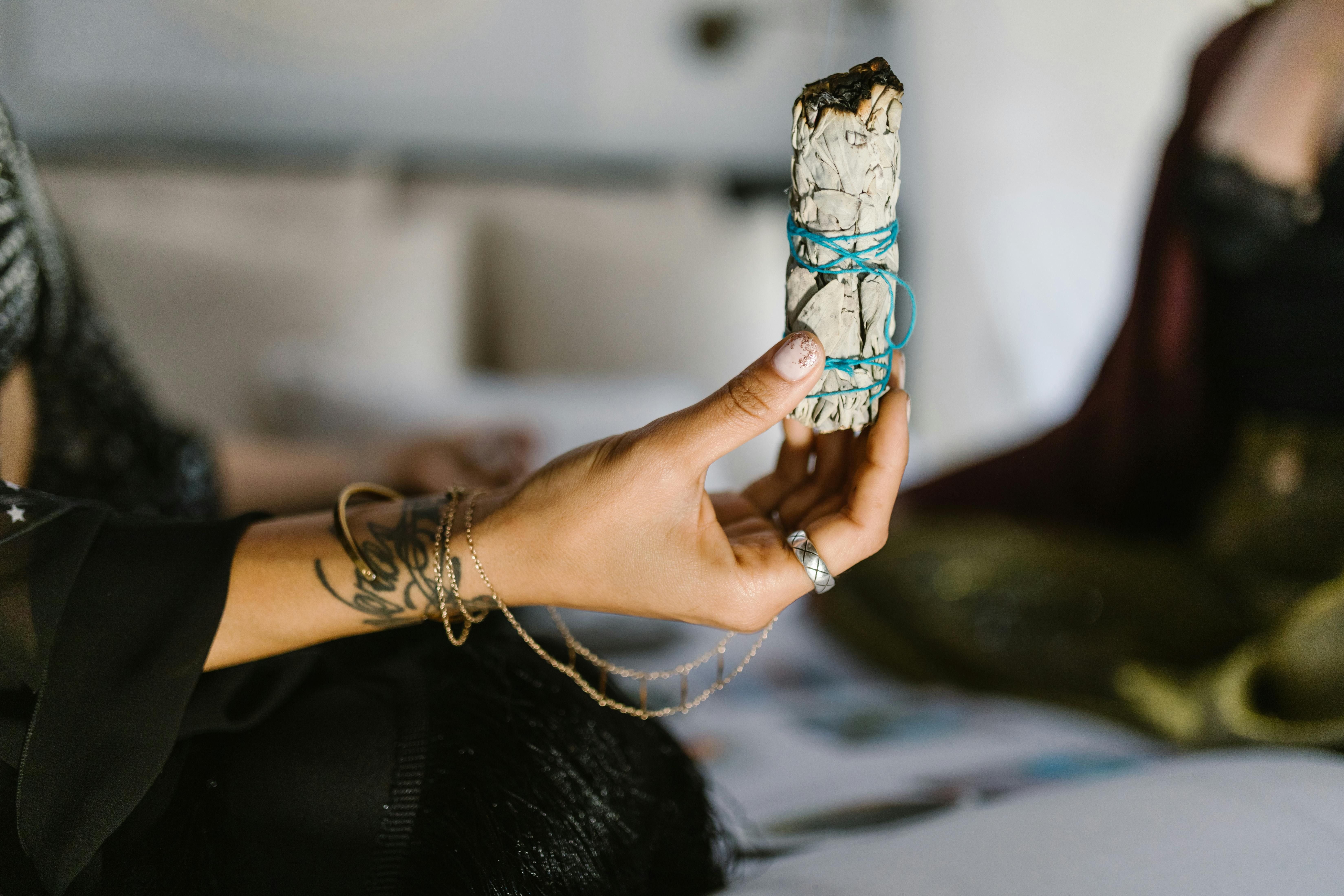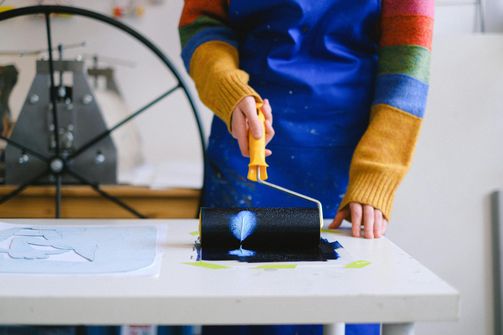
How CBT-I Helps Women Manage Insomnia: Boosting Sleep Quality and Overcoming Sleep Disorders
Sleep is essential for physical and mental well-being, but many women struggle with sleep disorders like insomnia, which can lead to fatigue, irritabi...

We’ve all had those moments where a gut feeling just feels right or a dream leaves us with a strange sense of knowing. But what if there’s more science than mystery behind dreams and intuition? Spoiler alert: there is! Women’s intuition and dreams are linked in fascinating ways, thanks to our brains working overtime while we sleep. In fact, when you sleep, your brain is deeply engaged in sorting through emotional experiences and processing the day’s events, and this is where intuition comes into play.
Dreams, especially for women, act as an emotional processing system that helps your subconscious piece together subtle patterns you may have missed during the day. So those “gut feelings” aren’t just random; they’re the product of your brain working hard, even while you’re asleep!
Let’s explore how this works and why women, in particular, experience dreams and intuition in such powerful ways.

Dreams occur primarily during REM (Rapid Eye Movement) sleep, which makes up about 20% of our total sleep time. While this phase of sleep is often associated with vivid dreaming, it’s also when your brain is hard at work on important functions like emotional processing and memory consolidation.
Your dreams may seem random, but they’re actually part of a sophisticated system designed to help you process information, regulate your emotions, and wake up with clarity. Women, in particular, often report more vivid dreams, which may be linked to higher emotional sensitivity and a greater capacity for intuition.
The idea that women have heightened intuition isn’t just a stereotype—it’s backed by neuroscience. Studies show that women tend to have a greater ability to read subtle emotional and environmental cues, thanks in part to differences in brain structure and function.
But it’s not just our brains that affect intuition—hormones play a role too. Studies show that women’s hormonal cycles can enhance emotional sensitivity and, in turn, sharpen intuition. Higher levels of estrogen during ovulation are known to heighten emotional awareness, meaning you may find yourself feeling more intuitive at certain points in your cycle.
Dreams and intuition are deeply intertwined. In fact, much of what we call intuition comes from the brain’s ability to subconsciously process information while we sleep. Here’s how they work together:
Emotional Clarity Through Dreams Dreams often allow your brain to process unresolved emotions, leading to greater emotional clarity when you wake up. Women, in particular, tend to have emotionally rich dreams, which may help explain why women often wake up with stronger gut feelings or a clearer sense of what to do in a difficult situation.
Subconscious Problem Solving Ever noticed how you sometimes wake up with the answer to a problem you’ve been wrestling with? That’s because your brain uses REM sleep to connect the dots between experiences, making intuitive leaps that you might not have made while awake.
Pattern Spotting While You Sleep During REM sleep, your brain links together experiences, memories, and emotions, allowing you to recognize patterns that might have gone unnoticed. These connections can surface in your intuition, giving you insights that feel sudden but are actually the result of your brain working behind the scenes.
Women’s hormones play a huge role in both how we dream and how we experience intuition. Throughout the menstrual cycle, levels of estrogen and progesterone fluctuate, which can significantly impact emotional processing and dream vividness.

If you want to strengthen the connection between your dreams and intuition, here are a few tips to get started:
1. Keep a Dream Journal Writing down your dreams can help you gain better insights into your subconscious mind. Over time, you may start to notice patterns that reflect your waking life, helping you connect your dreams to your intuitive feelings.
2. Practice Mindfulness Mindfulness meditation can help you tune into subtle cues, both in your dreams and in daily life. Practicing mindfulness before bed may also improve your ability to recall dreams and notice the emotions they bring up.
3. Pay Attention to Emotional Dreams If you wake up with a strong emotional response to a dream, take note. These dreams may be trying to communicate something important about your subconscious concerns or emotions, which can later influence your intuitive decisions.
4. Trust Your Instincts Sometimes, your gut feeling is the result of your brain processing information you aren’t consciously aware of. When you wake up with a strong intuitive feeling, trust that your brain has already done the hard work of analyzing the situation.
Q: How do dreams enhance women’s intuition?
A: Dreams, especially during REM sleep, help process emotions and organize memories, which can lead to clearer intuitive insights. Women often experience more emotionally vivid dreams, which can heighten emotional awareness and contribute to stronger gut feelings in waking life.
Q: Why are women more likely to have emotionally vivid dreams?
A: Research suggests that women’s brains are more attuned to emotional processing, and hormonal fluctuations (like estrogen) during the menstrual cycle may amplify the emotional intensity of dreams. This can lead to a stronger connection between dreams and intuition.
Q: Can practicing mindfulness before sleep improve intuition?
A: Yes, mindfulness practices such as meditation can help you relax, improve emotional awareness, and enhance the connection between dreams and intuition. By calming the mind before bed, you may also improve dream recall, which can support intuitive decision-making.
Q: What role do hormones play in dreams and intuition?
A: Hormones like estrogen and progesterone impact emotional processing and can influence the vividness of dreams. These fluctuations may also heighten intuitive abilities, especially during phases of the menstrual cycle when emotional sensitivity is increased.
Q: How can I use my dreams to strengthen my intuition?
A: Keeping a dream journal, practicing mindfulness, and paying attention to the emotions in your dreams can all help. These practices make it easier to connect the insights from your dreams to real-life decisions and intuitive feelings.
This article is for informational purposes only and is not a substitute for professional medical or psychological advice, diagnosis, or treatment. The information provided here is based on research into sleep, brain function, and intuition, but individual experiences may vary. Always consult with a qualified healthcare or mental health professional if you have concerns about your sleep patterns, mental health, or emotional well-being.
Dreams and women’s intuition aren’t mystical—they’re backed by science. By understanding how your brain works during sleep, you can start to trust and harness your dreams as a tool for strengthening your intuition. From heightened emotional sensitivity to pattern recognition, your brain is constantly working behind the scenes, processing information and helping you make sense of the world.
Next time you wake up with a strong gut feeling, trust it—your brain has already done the work while you were dreaming! Sweet dreams—and sharper instincts—await!

Sleep is essential for physical and mental well-being, but many women struggle with sleep disorders like insomnia, which can lead to fatigue, irritabi...

Friendship isn't just about shared laughs, deep conversations, and happy memories—it's also about longevity. Female friendships play a crucial role in...

Liminal spaces, or transitional periods in life, represent moments of transformation where women are “in between”—neither in the old nor the new, but ...

Laughter is a powerful tool for improving both mental and physical health, especially for women. The act of laughing releases a cascade of positive ph...

Creative Expression, whether through art, music, writing, or other pursuits, is not just a source of joy and self-expression—it has profound impacts o...